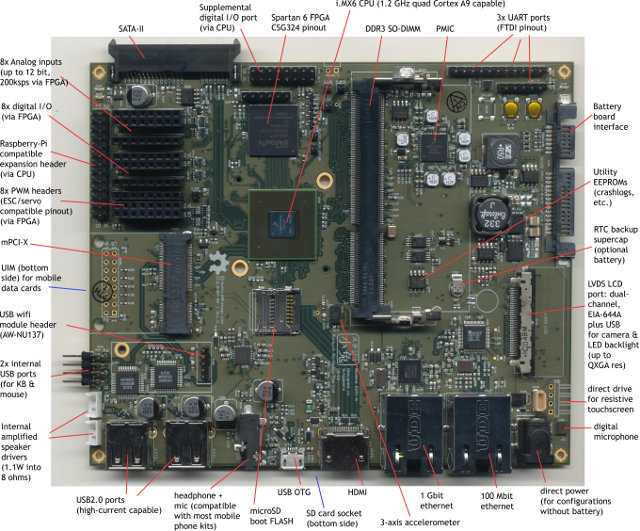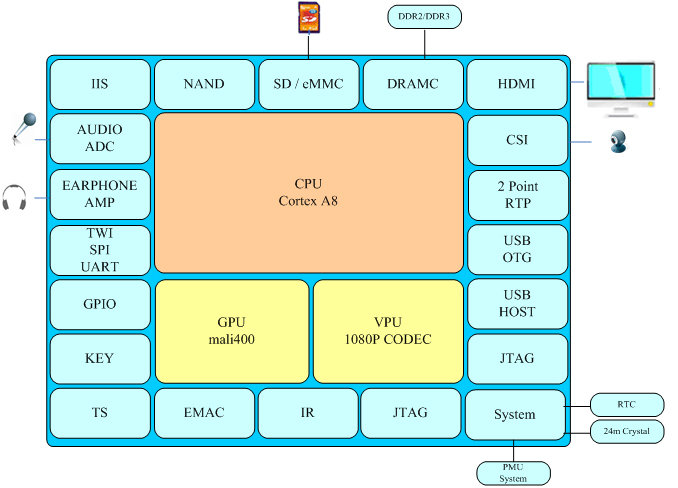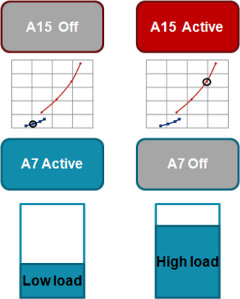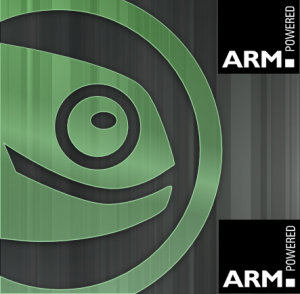Wolfram Sang, kernel developer for embedded systems at Pengutronix, talks about Device trees and conflicts and pitfalls he experienced as a kernel developer and I2C subsystem maintainer. This is one of several talks about Device trees at ELCE 2012. Abstract: Since ARM started to use device trees, their impact on various subsystems in the kernel has been increasing significantly. Because they became the de-facto standard, everybody wants them soon. Because they need a ton of conversions and adaptions, a lot of questions are still unresolved. This carries potential for conflicts.Wolfram has dealt with device trees already on PowerPC and still does on ARM. Additionally, he co-maintains the I2C subsystem which is affected by device tree conversions, too. Knowing both sides, as developer and as maintainer, he will talk about stumbling blocks experienced so far, e.g. typical pitfalls when inventing bindings or the high pace. A number of examples will be […]
Piglit OpenGL Driver Testing Framework Now Works with ARM Linux & OpenGL ES
Piglit is a collection of automated tests for OpenGL implementations that aims at improving the quality of open source OpenGL drivers by providing developers with a simple means to perform regression tests. ARM SoCs that come with a GPU usually (always?) supports OpenGL ES however. That’s why, Tom Gall (Linaro) has modified Piglit in order to bring this test suite to ARM Linux and OpenGL ES. There are about 6,900 OpenGL tests in Piglit, and currently 1,047 Piglit (OpenGL ES) tests can run on ARM . Tom also explains that piglit developers are now using waffle, a cross-platform C library that allows one to defer selection of GL API and window system until runtime. This will allow your to select the variation of the GL API (GL, GL ES) and windowing system (X11, Wayland…) you want to use at runtime. The code is still heavily modified, but it’s in the […]
Build Your Own Freescale i.MX6 Quad Laptop
Andrew Huang (“Bunnie”) and others have been working on an open source laptop based on Freescale i.MX6 Quad processor since June, and they’ve recently got the motherboard. Beside featuring a powerful quad core ARM processor, the design files are also provided, so if you have the right skills and resources you can build it yourself. The open source laptop mainboard (Codename: Novena) has the following specifications: SoC – Freescale iMX6 Quad @ 1.2GHz with Vivante GC2000 GPU System Memory – 64-bit DDR3-1066 SO-DIMM, upgradable to 4GB Storage – microSD boot flash, SATA-II connector for hard drive / SSD, SD card reader and serial EEPROM (for storing crash logs and other bits of handy data). FPGA – Spartan-6 CSG324. It has several interfaces to the CPU, including a 2Gbit/s RAM-like bus. Internal ports & sensors: mini PCI-express slot UIM slot for mPCIx mobile data cards Dual-channel LVDS LCD connector (up to […]
Linux 3.7 Release
Linus Torvalds has announced the release of Linux Kernel 3.7: Whee. After an extra rc release, 3.7 is now out. After a few more trials at fixing things, in the end we ended up reverting the kswapd changes that caused problems. And with the extra rc, I had decided to risk doing the buffer.c cleanups that would otherwise have just been marked for stable during the next merge window, and had enough time to fix a few problems that people found there too. There’s also a fix for a SCSI driver bug that was exposed by the last-minute workqueue fixes in rc8. Other than that, there’s a few networking fixes, and some trivial fixes for sparc and MIPS. Anyway, it’s been a somewhat drawn out release despite the 3.7 merge window having otherwise appeared pretty straightforward, and none of the rc’s were all that big either. But we’re done, and […]
AllWinner A10s Processor Overview
Between the AllWinner A10 and AllWinner A13 processors, there’s now an alternative. AllWinner A10s is based on AllWinner A13 architecture (sun5i), but adds HDMI and Ethernet MAC which makes it suitable for mini PCs and set-top boxes. The first time I heard about this processor was in August with IP878 mini PC, and in October, one reader (Alex) informed me AllWinner had posted more details about his new processor. Here are the key features of this (relatively) new SoC: CPU/GPU – ARM Cortex-A8 Core with 32KB D-Cache/ 32KB I-Cache / 256KB L2 Cache, and Mali-400 VPU HD Video Decoding 1080p@30fps of VP8/6, H.264/H.263, WMV9/VC-1, WMV7/8, MPEG-4/2/1, Xvid codecs HD Video Encoding 1080p@30fps with H.264 codec Video Out – HDMI 1.4 (1080p), Memory Up to 1GB DDR2/DDR3 up to 533MHz (16/32 bits Data Bus) MLC/TLC/SLC/EF-NAND ECC 64-bit Peripherals: USB2.0 OTG, USB2.0 HOST (OHCI/EHCI) SD Card V.3.0, eMMC V.4.2 SPI, TWI and […]
Big.LITTLE Processing Implementations and Current Status
There was a big,LITTLE mini-summit during Linaro Connect Europe 2012, where an update was given on current big.LITTLE implementations and the results of measurement of power vs performance. Big.LITTLE Processing Implementations Overview As briefly mentioned in “Versatile Express TC2 (2xA15, 3xA7) Development Board at ARM Techcon 2012“, there are 2 big.LITTLE implementations: In-kernel switcher (IKS) This implementation is already available through Linaro and only required minimal changed to the kernel as it mainly an augmentation to DVFS (Dynamic Voltage and Frequency Scaling) except instead of only adjusting voltage and frequency depending on the load, it will also move the load to different cores. The main drawback is that this implementation only uses half the cores. For example, on a 2x Cortex A15 / 2x Cortex A7 system, it can only use 2 cores at the same time (either A15 or A7 cores), as the load is managed between one type […]
openSUSE 12.2 for ARM is Now Available for Beagleboard, Pandaboard, Efixa MX and More
The first stable release of openSUSE for ARM has just been announced. openSUSE 12.2 for ARM is officially available for the Beagleboard, Beagleboard xM, Pandaboard, Pandaboard ES, Versatile Express (QEMU) and the rootfs can be mounted with chroot, but “best effort’ ports have been made for Calxeda Highbank server, i.MX53 Loco development board, CuBox computer, Origen Board and Efika MX smart top. Work is also apparently being done on a Raspberry Pi port which should be available for the next release. openSUSE developers explains that almost all of openSUSE builds runs on these platforms (about 5000 packages). Visit “OpenSUSE on your ARM board” for download links and instructions for a specific ARM board. More details are available on the wiki page. openSUSE has limited resources for ARM development, so If you’d like to help with development (e.g. fixing builds), visit ARM distribution howto page to find out how to get […]
Versatile Express TC2 (2xA15, 3xA7) Development Board at ARM Techcon 2012
If you’ve been following Linaro work, you may have read they develop big.LITTLE processing on TC2, a Test Chip based on 2 Cortex A15 cores and 3 Cortex A7 cores. Charbax is at ARM Techcon 2012 and he shot an interesting video showing 2 Versatile Express development boards based on TC2 demonstrate different big.LITTLE processing schedule strategies: The first scheduling strategy switches between Cortex A15 and Cortex A7 depending on the load required. The second scheduling strategy makes use of 5 cores at the same time and runs high load tasks on the Cortex A15 cores whereas simpler tasks are run on Cortex A7 core. This is only available on Android and Linux and the moment. TC2 is an actual silicon (not FPGA), and as they opened the casing of the development kit (Around 5:00 in the video), you’ll see a fan to cool down the SoC as it is […]








